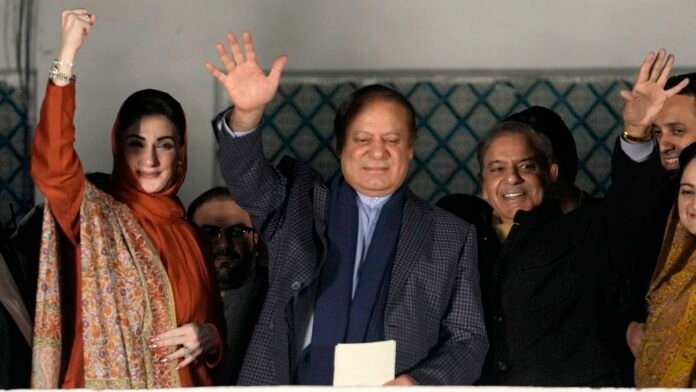
Pakistan’s political landscape is witnessing a deadlock as former Prime Minister Nawaz Sharif inches closer to a potential return to power, while scion of the Bhutto dynasty, Bilawal Bhutto-Zardari, withdraws from contention. This development has stirred considerable speculation and debate across the nation.
The withdrawal of Bilawal Bhutto-Zardari from the race for the Prime Minister’s post has reshaped the dynamics of Pakistani politics. Bhutto-Zardari’s decision has been met with surprise and intrigue, especially given the longstanding political legacy associated with his family.
Meanwhile, Nawaz Sharif’s emergence as a prominent candidate for the Prime Ministerial role has injected fresh energy into the political arena. Sharif, a seasoned politician with a strong support base, has been actively mobilizing his party’s resources in anticipation of a potential electoral victory.
The evolving political scenario in Pakistan has generated intense interest among citizens and stakeholders alike. With the prospect of Nawaz Sharif assuming office looming large, there is a palpable sense of anticipation and speculation regarding the future trajectory of the country’s governance.
Observers have noted that Nawaz Sharif’s potential return to power could herald significant changes in Pakistan’s domestic and foreign policies. Sharif’s previous tenures as Prime Minister have been marked by both progress and controversy, making his reemergence on the political scene a subject of keen scrutiny.
However, challenges and obstacles remain on the path to power for Nawaz Sharif. The political landscape in Pakistan is notoriously complex, with various factions vying for influence and control. Sharif’s ability to navigate these intricate dynamics will be critical in determining his success.
Moreover, the withdrawal of Bilawal Bhutto-Zardari from the Prime Ministerial race has raised questions about the future direction of the Pakistan People’s Party (PPP). As one of the country’s major political parties, the PPP’s internal dynamics and leadership decisions hold significant implications for Pakistan’s political landscape.
The coming days are likely to witness intense political maneuvering and negotiations as key players jockey for power and influence. The fate of Pakistan’s next government hangs in the balance, with Nawaz Sharif’s potential ascension to the Prime Minister’s office representing a pivotal moment in the nation’s political history.
Amidst the political maneuvering and speculation, the role of other key players and parties cannot be overlooked. Regional and smaller political entities hold sway in certain areas and constituencies, and their alliances or oppositions could shape the overall political landscape. Furthermore, the role of the military and judiciary in Pakistani politics remains a subject of intense scrutiny, with their influence often intersecting with civilian governance.
The Pakistani electorate, meanwhile, watches closely as events unfold, weighing the promises and track records of political leaders against their aspirations and concerns. The outcome of the next elections will not only determine the composition of the government but also set the course for Pakistan’s socio-economic development and its role on the global stage.
As the political drama unfolds, Pakistan faces pressing challenges on multiple fronts, including economic stability, security, and social cohesion. The incoming government will inherit a range of complex issues requiring urgent attention and decisive action. How effectively the new leadership addresses these challenges will shape the country’s trajectory for years to come.
In this dynamic political landscape, the people of Pakistan remain the ultimate arbiters of their nation’s destiny. Their participation in the democratic process, from voting in elections to holding leaders accountable, will be crucial in ensuring that Pakistan’s democratic institutions remain strong and resilient.
As the nation navigates this critical juncture in its political journey, the eyes of the world are on Pakistan, observing closely how it manages its internal affairs and its relations with neighboring countries and global partners. The decisions made in the coming weeks and months will reverberate far beyond Pakistan’s borders, impacting regional stability and international geopolitics.